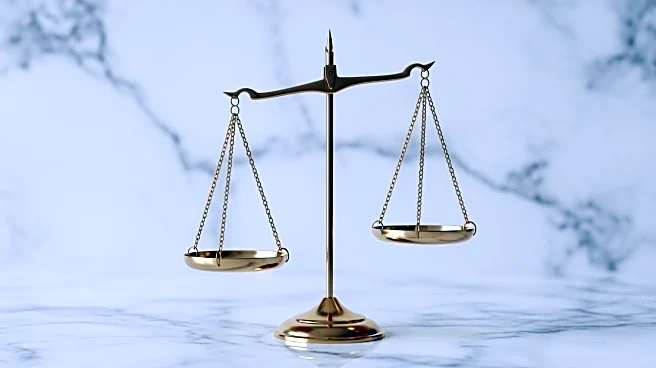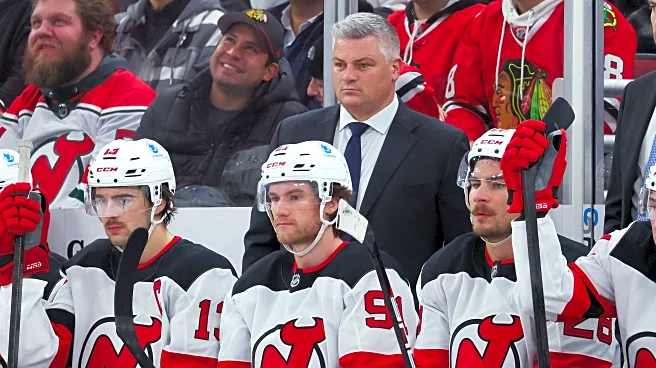What's Happening?
John Stamos has publicly defended his former 'Full House' co-star Lori Loughlin regarding her involvement in the 2019 college admissions scandal. Stamos, speaking on the Good Guys podcast, attributed the blame to Loughlin's ex-husband, Mossimo Giannulli,
suggesting that Loughlin was not the architect of the fraudulent scheme. Both Loughlin and Giannulli were arrested after an FBI investigation revealed they paid $500,000 to falsely present their daughters as crew team recruits at the University of Southern California. Loughlin pleaded guilty to conspiracy charges and served two months in prison, while Giannulli received a five-month sentence. Stamos emphasized Loughlin's character, describing her as a 'saint' and expressing his support during her recent personal challenges, including her separation from Giannulli.
Why It's Important?
The college admissions scandal highlighted issues of privilege and corruption within the U.S. education system, sparking widespread public outrage. Stamos' defense of Loughlin brings attention to the personal impacts of the scandal on those involved, particularly Loughlin, who has faced significant legal and reputational consequences. The scandal has prompted discussions on fairness in college admissions and the influence of wealth in educational opportunities. Stamos' comments may influence public perception of Loughlin, potentially affecting her career and personal life as she navigates the aftermath of the scandal.
What's Next?
Loughlin's future in the entertainment industry remains uncertain as she continues to deal with the fallout from the scandal and her separation from Giannulli. Public and industry reactions to Stamos' defense could impact her opportunities for professional rehabilitation. Additionally, the broader implications of the scandal may lead to increased scrutiny and reforms in college admissions processes, as institutions seek to restore public trust and ensure equitable access to education.
Beyond the Headlines
The scandal underscores ethical concerns regarding the use of wealth and influence to manipulate educational outcomes, raising questions about accountability and justice. It also highlights the cultural dimensions of celebrity influence, as figures like Stamos use their platforms to shape narratives and public opinion. The long-term effects on Loughlin's personal and professional relationships, as well as the broader societal implications of the scandal, continue to unfold.















